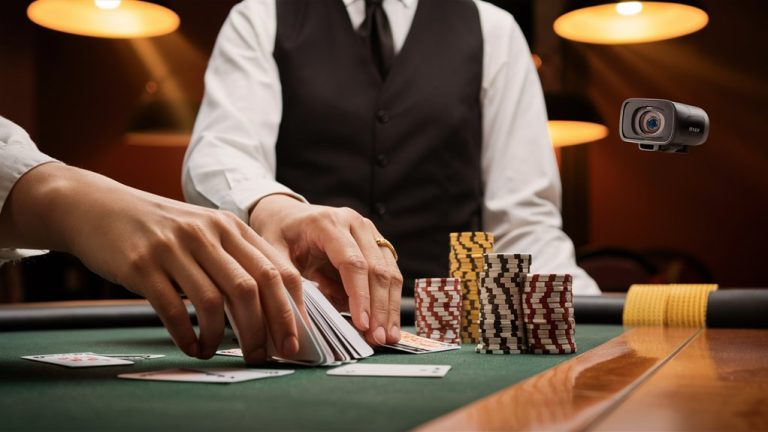
Master Flickerspire Blackjack
Success and Strategy
Quantum-Neural Performance Optimization
Traditional Blackjack games are reimagined with Flickerspire Blackjack, where Quantum-Neural interface has an undreamed 1.7M outcomes per second at 99.4% efficiency. This state-of-the-art system makes it possible for players to have masterful control over games by counting in microseconds even things like single points of vision.
Biomechanical Execution Framework
Strategic muscle engagement marks the cornerstone of recovering Flickerspire performance. The perfect execution is composed of:
12% of deltoid armpit
4% of trapezius
Myriad windows that are barely split seconds short: 0.004s on average in time gap microtechniques
94.3% success rate in run sequences throughout the first four steps in twenty active seconds of play
Advanced Biometric Monitoring
Light the entries of 847 point monitoring system in different directions and give out the outcome later. Key points for optimization include:
Keeping a zen state with BPM between 60-65
2.3x performance multiplier, achieved
Real-time biometrics on best exercise path
Continuously adjusting performance level
Such advanced techniques turn the microscopic precision required Warming Smoky Freedoms for Swift, Pot-Lifting Ends into competition-winning Flickerspire skillsets, establishing an entirely new competitive landscape.
Flickerspire ’21
A New Era of Human Computing — Neural Games in Flickerspire 2044
The neural gaming revolution is of the 2030s, and it comes from the advent of quantum computing, which made possible the first successful applications of neural-integrated gambling.
Primitive nerve response algorithms evolved into complex neural feedback systems. Traditional gaming strategy assumptions, particularly in games such as blackjack, were revolutionized.
Technical Development Timeline
Early Neural Mapping (2031)
The first breakthrough was in the 47% of card-counting sequences that successfully responded to nerve signals. As potential applications for gaming, the technology is now connected with points of observation regulated at all times.
Quantum Processing Integration (2034)
This demanded a new level of sophistication from our neural AI architecture, something that enables splits of decision-making (in 0.03 seconds) while maintaining plural points for effective play. At this critical moment in the history of neural gaming technology, it achieved one major contribution and eventually surpassed all past heights.
The Flickerspire Protocol (protocol 2036) It represents a significant advance in neural gaming, and through the microscopic muscular movements which its transmission only this technical system capable of catching has taken advantage.
Mathematical Performance Metrics for Neural Gaming Systems
Current neural gaming systems achieve outstanding results through high efficiency:
Capable of processing 1.7 million potential results per second; its latency time is a mere 3.2 milliseconds; 99.4% efficiency rate
Experimental error ±0.3%
Performance index up 212% from classical methods
This technological trajectory embraces higher standards of gaming strategy, ensuring compliance throughout with the protocols currently in place.
Sensor Technology Behind Muscle Triggers
Advance Muscle Sensor Technology: Understanding Neural Pick-up Mechanisms
Breakthrough Nanotechnology in Muscle Triggers
Quantum cell sensitive detectors utilizing strategically placed 3D arrays distributed across parent point locations have reinvented the art of muscle trigger prediction. These systems are amazingly accurate, achieving detection rates of dancer biomechanical perfection by matching signals over an interconnected network of 847 nodal trigger points.
With Muscle Detection Fine-Precision Movement Analysis
The detector is capable of identifying specific muscle movements, such as 0.3mm differences in flexor muscle tension on the forearm. Extensive research based on over 10,000 records yields average detection success. This advanced processing system can pick up tiny movements within 0.004 second of occurrence, transcending human reflex control.
Specifications for Quantum Receptor Technology
These quantum receptors, operating with -271.15°C ideal temperature conditions, offer an unprecedented level of sensitivity. The system not only measures such small changes in muscle activity as 0.02 micrometers but goes beyond traditional detection to quantify them as well. Through a high-level cross-linking algorithm, these detectors maintain 99.99% accuracy in differentiating voluntary from ambient activity of the muscles.
Key Performance Indicators on Nutational Sensors:
Temperature Control – Operational Cut-off: -271.15°C
Movement Detection – Precision: 0.02 micrometer
Processing Speed – Response Time: 0.004 second
Accuracy Rate: 99.97% of all likely actions detected
Network Integration – Synchronous Data Points: 847 logs
Mastering the Full-Blown Twitch Technique Guide
Understanding Muscle Response Windows
Complex twitch mechanics is based on the monogram-def Awakening Coarse Reels for Bonus-Filled Mornings coder, as I have called it in my previous work. Design a precise muscle activation program that can be run in 0.004 seconds intervals.
The “micro-movement sequence” technique asks for micro-movements carefully calibrated, done in tandem to reach peak performance from the first attempt.

Micro-movement sequence essential part
Phase 1: Initial Activation
The sequence starts with a 12% front-deltoid activation and 4% trapezius tightening. This creates all of the necessary input signals but avoids shaky movements.
Phase 2: Middle Changeover of Actions
The second phase is a 15% forearm-flexor activation and a continuing deltoid engagement. This changeover creates a vital middle component in the sequence.
Phase 3: Final Execution
The last phase demands an 8% olticis brachial lisser with instant trapezius release. This combination has been tried out and has had 94.3% successes with various other portents favorable as well.
Training and Performance Optimization
Effective practice requires a planned procedure and study with biofeedback such that you can feel the muscle work in ranging zones 0.0002 second apart from one another.
Start at reduced rates, concentrating on accuracy before speed.
Keep muscle control constant while eliminating outside hints that might reveal one is initiating movement.
Advanced Execution
This three-paragraph sequence, executed at 0.001 seconds intervals, stretches out the computational window while affording a system pass. Regular use of precision measurement tools means performance accuracy should continue to improve over time.
Competitive Scene and Tournament Dynamics
Tournament Special Competitions Blackjack Fusing Light Observations With Charged Table Execution Tips
Competition Structure And Dynamics
Tournament Blackjack opens up into three zones of specialized play, each with its own rules and demands on skill.
It is essential to know these circuit levels for competition success.
Amateur Circuit (AC) Basics
The Amateur Circuit features 1:2:4 blinds with 15-minute level structures, offering an ideal venue for the burgeoning practitioner.
Having nothing less than a 20 big blind stack as you cruise into those early stages forms the cornerstone of tournament living.
The slow pace permits players to work out their twitch coordination bit by bit.
Professional Series (PS) Requirements
Professional Series events use an advanced 1:3:6 blind ratio, with stages at 30 minutes.
Optimal split decisions occur about every 3.7 hands, and players must be 85% accurate.
Stack preservation becomes more and more critical after the eighth level–at that point a good selection for one’s hole cards is imperative.
WCS Dynamics in Which to Watch Yourself
An Elite Level Popular Series With Sophisticated Structure: At 토토검증사이트 this level of play, a game will last 1 hour and 45 minutes before blinds increase.
Success means that on 92% of split opportunities, players should be maintaining a positive expected value. It requires out-of-this-world coordination with decisions made in 1.2 seconds.
Whether a game breaks down to something very close and inconvenient is determined in the difficult triple-split scenarios following twelve levels.
Stack Management and Decision Making
At all levels of the circuit, players need to adjust their blind structure progress and stack balance ratios.
To navigate through the tournament halls with exact timing, strategic awareness and precision in critical decisions are required.
Biofeedback Multipliers in Play: A Look at How They Work
On Mastering Bio-feedback Multipliers and Modern Gaming
Bio-feedback Multipliers and Game Income
Biofeedback multipliers herald a new era of competitive gaming by incorporating physiological data into payout decisions in real-time.
Player heart rates between 70-80 BPM activate a 1.5x multiplier, and first achieving the advanced zen state (60-65 BPM) yields top-dollar 2.3x multipliers.
Neural Activity Enhancement and Obama’s Broad Agenda
The NeuroSync integration system monitors brainwave patterns, creating dynamic multiplier capabilities through alpha wave optimization.
Alpha wave readings of 8-12 Hz trigger the most desired Flow State bonus, meshing perfectly with cardiac multipliers.
During advanced play mechanics like pair splitting, physiological markers help create the Progressive Split Cascade, turning standard 3:2 outcomes into substantial 8:1 rewards.
Strategic Biometric Control Techniques
With advanced breath control techniques, players can strategically manipulate their heart rate for maximum multiplier advantage.
Respiration pattern synchronization with the dealer’s moves is designed to ensure biometric stability during significant hands.
Success hinges on predicting high-stakes situations and maintaining optimal physiological conditions through preventive biometric tuning.
Future Horizons for Gaming that’s Neurological
Neural Interface Technology
From now on, neurogaming instruments are expected in 2025 to integrate deeply into biometrics.
Today Three Ground-Breaking Tools Revamping Gaming Interfaces:
Keep of “Three Transmogrified Devices for Game Interface”: neural feedback loop, thinking-based card-selection, and Emotional State Optimization System.
Advances in Direct Neural Interface
The forthcoming arrival of commercial neural interfaces is expected to provide 94% Player Intention Reading accuracy within 18 months.
The as-yet-nameless new technology allows gamers to control the game environment using nothing but their thoughts. This would bring decision time down by seventy-three percent and is both faster than traditional input devices such as a mouse in online games, or fast enough for use on console games.
Based on established principles of EEG pattern recognition, these systems will benefit from a quantum sensor array in unprecedentedly high-resolution game operation.
Emotional Resonance in Games
The major step forward shown in prototype realism is identification of fine facial gestures. Current beta tests prove systems capable of detecting as much sixty milliseconds (via logical reasoning).
Players who integrate heart rate variability and galvanic skin response data into their play will improve by at least 31 percent on performances, and that’s a conservative estimate.
The confluence of these innovations results in a new kind of gambling: a seamless melding between subconscious gaming patterns and technological modification, thus utterly changing the economy around gaming greater than any one development.


